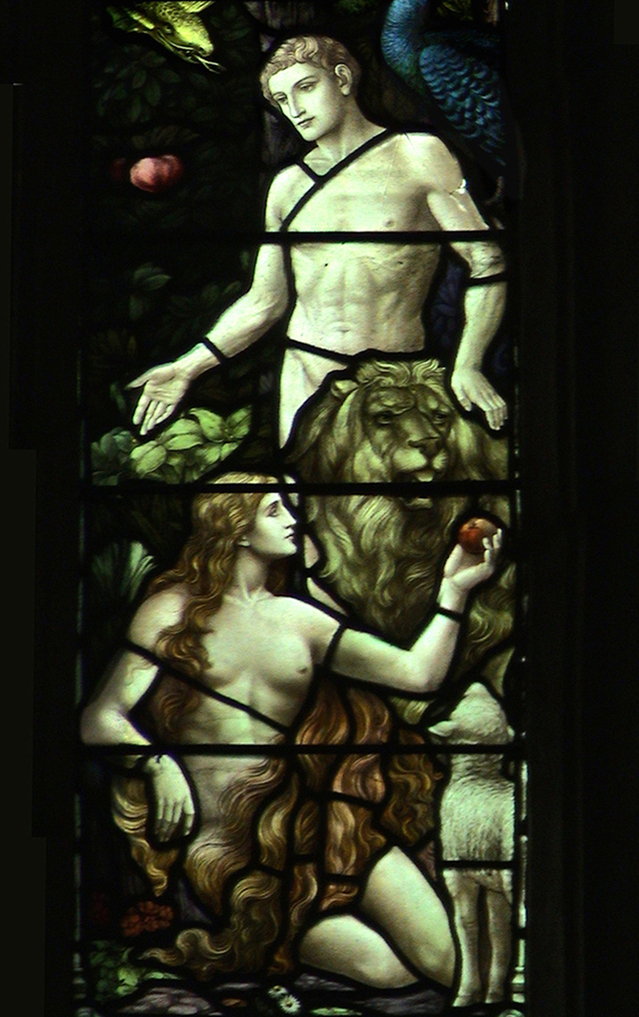Got Choices?

In the Beginning
As we look back into our past, it is only a relatively short period of time (particularly in terms of geological time) during which mankind has recorded any kind of written history. Available records seem to be limited to a span of around 6000 years. The Bible contains a narrative believed by many to date back to that time period. We refer to it here, not to advocate a particular theological position, nor to assert its divine origins or even its historical accuracy. Rather, we look to the Bible to better understand our own evolution by examining the thoughts and beliefs of people who lived long before our time.
Let us begin with the narrative in Genesis which, according to many Faiths, describes the very dawn of our mortal and temporal existence. Chapter 1, verse 3 (in Young’s Literal Translation) says:
and God saith, ‘Let light be;’ and light is. [source]
The author seems clear in understanding that there was a point at which light (or energy, as we might also say) came into existence. While this act of creation is attributed to God–not necessarily the big bang, it is interesting to note how consistent it is with scientists’ present understanding of a distinct moment of creation occurring a finite time back in our past, from which emanated not only all energy (and hence matter) in our universe, but interestingly, even time itself.
The verses which follow describe steps of separation, categorization and naming which bring to mind a process of organization, or as we have discussed already, “reverse entropy.” However ancient this account, it seems to still be consistent with the more modern scientific notion that our existence had to begin from a state of higher organization–entropy’s starting point, if you will. Seemingly, the author of Genesis had a sense of entropy even if he didn’t explain it in the particular terms of today’s physics.
The creative act described seems to apply, not only to the earth, but also to the objects of the heavens such as stars and planets. Then it quickly begins to focus back on the earth and the establishment of the living creatures we share the planet with. The animals of the earth are not only “prepared” and “brought forth” upon the earth, but are also “blessed” with the ability to procreate.
The author seems to recognize that life is not only unique from an organizational standpoint, but also in its ability to continue on through time, reproducing more of itself. The establishment of this trait is, of course attributed to God–the same force responsible for organizing (or de-entropifying) all the other conditions in the creation. In one sense, it is like a giant spring is being wound up–a source of potential energy being structured into a state of high organization so it can expend that energy as it gradually unwinds throughout time.
Verse 26 offers an interesting perspective:
And God saith, Let Us make man in Our image, according to Our likeness, and let them rule over fish of the sea, and over fowl of the heavens, and over cattle, and over all the earth, and over every creeping thing that is creeping on the earth. [source]
In this verse and those which follow, the author clearly understands that in order for man to survive and propagate on the earth, he is going to be consuming, or otherwise exploiting other life forms such as plants and animals. In this narrative, man is described as “ruling” over these other life forms. At least in the context of Genesis, mankind is understood to be the higher life form. The plants and the other animals will be subject to him and he will use them as he sees fit to meet his needs and to make himself more comfortable during his stay on earth.
Chapter 3 describes the fascinating account of the serpent and the “temping of Eve.” Without devolving into the myriad interpretations that have been described by various Faiths, let us just point out a few observations most relevant to our subject. Initially, Adam and Eve seem not to be entirely self-aware. But one of the very first things they encounter is: a choice!
Apparently, in the middle of the garden, there is a tree. And if they eat the fruit of the tree, it will somehow “open their eyes” and make them wise–able to discern good and evil. God has apparently already warned them, they shouldn’t eat the fruit. And yet for some unknown reason, He either put it there, or allowed it to be there, available for them to access if they so chose.
Isn’t it interesting that when we go back to one of our oldest records available, its earliest theme turns out to be:
- Mankind is intelligent and has become self-aware.
- Because of this, we have the ability to exercise our free will.
- But depending on how we choose, there are going to be consequences of one kind or another.
One of those consequences seems to have something to do with entropy. Whereas Adam and Eve were previously allowed to live in a special garden where all of their needs would be accommodated by nature, now they are going to live in a world where they have to do work in order to stay alive. And life itself is going to be temporary. Chapter 3, verse 19 states:
by the sweat of thy face thou dost eat bread till thy return unto the ground, for out of it hast thou been taken, for dust thou [art], and unto dust thou turnest back. [source]
The Genesis author understands that we live in a world where the resources required for the preservation of life come only with the addition of our labors. These resources exist in a state of “low energy” where they must be “lifted up” or re-energized in order to be usable by man.
It is interesting that this change for Adam and Eve is sometimes referred to as “the fall” and we are referred to in some beliefs as “fallen man.” This sounds a lot like a recognition of the presence of entropy in our universe and an understanding that it is the force of life itself which is needed in order to beat back the tide of entropy so life can continue.
This account can also be thought of as being about the birth of the field of economics. As we mentioned, this is the study of how scarce resources are obtained, improved, allocated and used. As the story progresses, we learn more about the realities of economics and how mankind would go about obtaining some of those scarce resources for his own use and survival.
Chapter 4 contains the account of Cain and Abel. Cain had chosen to apply the “sweat of his face” to growing things in the ground. Here we have an explanation of the origins of the cultivation of plants–recognizing they are a source of energy and sustenance for people. The life force present in plants takes in the lower-energy molecules of water and carbon dioxide, and adds energy from sunlight to organize them into higher-energy, more organized molecules such as the carbohydrates we digest and use for the strength we need to sustain our lives.
Abel, on the other hand, became a keeper of animals–an even “higher” form of life which, itself consumes plant energy and transforms it into other complex forms such as fats and proteins. His story provides an account of the beginnings of the domestication of animals in order to produce many of the other things we need to sustain our lives. Indeed, the coats of skins Adam and Eve use for their clothing would presumably have come from animals.
According to the biblical account, however, Cain discovers something much more significant than just how to grow crops or raise cattle. Not only can he exploit the energy-producing power of lower life forms such as plants and animals, but he can also take advantage of the output of other humans who have worked by the sweat of their faces.
In the story, Cain attributes his motivation solely to a competition with Abel for the approval of God. However, the undertones of the story allow us to perceive how Cain may had discovered that it takes much less energy to just steal the work product of other people than it does to do all the hard work yourself. With Abel out of the way, surely his flocks would fall into the hands of his brother. In this case, Cain is our prototypical first predator and Abel is his first producer-victim.
As the Genesis author demonstrates, the post-Eden world will be ruled by force. And only the strongest and fittest will survive. As a consequence of man’s free will, even an artificial overlay of civilization–be it created by God or man–may fail to prevent every instance of exploitation or unfairness. The best civilization has to offer may be limited to a process of justice, which can only really be applied after the offense has already occurred.
